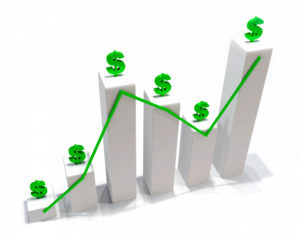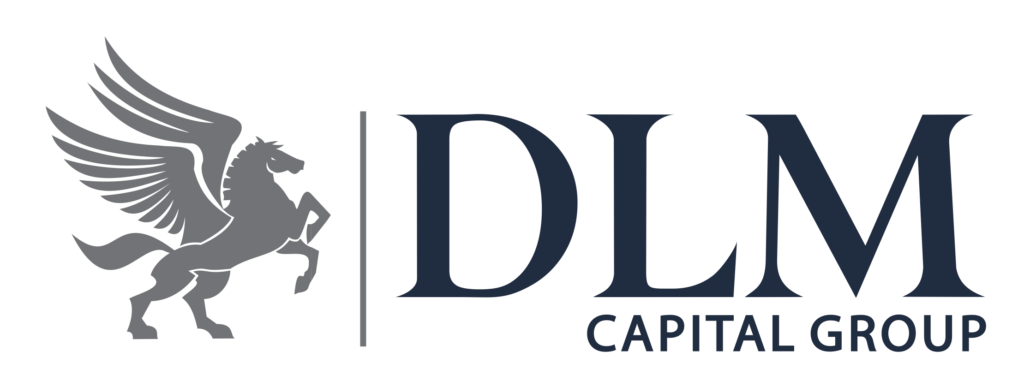Introduction to Nigerian Debt Market
The Nigerian debt market is at the center of Nigeria’s economic development, which offers investors alluring prospects while serving as a vital platform for business and governmental finance. Global economic challenges, domestic fiscal policies, and the emergence of novel finance vehicles are all driving significant changes in this industry in 2024. The future of Nigeria’s financial ecosystem is being shaped by these developments, which range from a greater dependence on Eurobonds to the rising acceptance of Sukuk and green bonds.
Knowing the main trends influencing the Nigerian debt market is crucial for making wise decisions, regardless of your level of experience as an investor, legislator, or financial market enthusiast. We’ll look closely at these patterns, analyze the factors behind them, and emphasize the potential in this piece and risks they present.
Trend 1: Evolving Bond Yields and Investor Sentiment
Nigerian bond rates are making news in 2025, reflecting larger economic realities. Inflationary pressures and monetary policy adjustments are driving up long-term bond yields. While this suggests bigger profits for investors, it also highlights underlying concerns.
The Central Bank of Nigeria’s (CBN) monetary policy modifications are critical. The Monetary Policy Rate (MPR) has been raised multiple times in reaction to inflation, which is now at over 25%. This tightening policy has a direct impact on bond rates, making debt instruments such as treasury bills more attractive.
Retail and institutional investors are reacting to these trends. Platforms like Cowrywise and Bamboo have made these securities more accessible, attracting an increasing number of individual investors to the debt market. However, high yields should be approached with caution—inflationary pressures can erode actual profits and shifting currency rates add another degree of difficulty for international investors.
To handle these trends, investors must balance risk and return by diversifying across maturities and exploring products such as inflation-linked bonds.
Trend 2: Shift Toward Eurobonds: A Double-Edged Sword
Nigeria has increasingly turned to Eurobonds as a vital source of foreign currency finance. These bonds, which are often issued in US dollars or euros, provide access to global capital markets, allowing governments and enterprises to fund large-scale projects.
However, the reliance on Eurobonds raises questions about the foreign debt’s sustainability. Foreign currency liabilities subject the country to significant foreign exchange risk, particularly given the naira’s volatility. A falling naira can make repayment more expensive, draining government reserves and raising debt-servicing costs.
Eurobonds provide investors with higher yields than established markets. However, the risks of currency depreciation and probable default must be carefully considered. Eurobonds’ role will continue to be scrutinized as the government balances its need for foreign finance with debt sustainability goals.
Trend 3: Sukuk Bonds Gaining Traction: Ethical and Inclusive Investing
Sukuk bonds, rooted in Islamic finance principles, are becoming a popular choice in Nigeria. These bonds, which avoid interest payments by adhering to Shariah-compliant structures, appeal to ethical investors and religious communities.
The Nigerian government has used Sukuk bonds to fund key infrastructure projects, such as road construction and power development. Beyond their ethical appeal, Sukuk bonds also offer the advantage of diversification within the debt market, attracting both domestic and international investors.
As demand for Islamic financial products increases, Sukuk bonds are projected to play a bigger part in Nigeria’s infrastructure funding. Their compatibility with ethical investing standards makes them especially appealing to investors looking for both financial and social gains.
Trend 4: Green Bonds and Sustainable Finance: Investing for Impact
Sustainability is no longer a niche concern—it’s becoming a mainstream investment priority. Nigeria’s issuance of green bonds demonstrates a commitment to financing environmentally friendly projects, such as renewable energy and climate resilience initiatives.
These bonds align with global Environmental, Social, and Governance (ESG) standards, making them attractive to investors focused on long-term, impactful returns. Green bonds also help diversify Nigeria’s debt instruments, broadening the market for both retail and institutional investors.
For stakeholders, the emergence of sustainable financing gives a chance to support Nigeria’s economic ambitions while also tackling global environmental concerns. However, establishing openness and accountability in the use of green bond funds is still crucial to retaining investor trust.
Trend 5: Increased Retail Investor Interest: Democratizing the Debt Market
Retail engagement in Nigeria’s debt market has increased significantly because to fintech platforms such as Cowrywise and Bamboo. These platforms let individuals to invest in treasury bills and government bonds for as little as ₦1,000, making debt instruments more accessible than before.
This market democratization not only broadens the investment base, but also promotes financial knowledge. Retail investors are lured to government assets for their relative stability, particularly during moments of stock market volatility.
As technology continues to bridge the gap between institutional markets and everyday investors, retail participation is likely to grow further. This trend highlights the importance of creating transparent and user-friendly investment avenues to sustain engagement.
Trend 6: Impact of Monetary Policy: Steering the Debt Market
The Central Bank of Nigeria’s (CBN) monetary policy plays a pivotal role in shaping the Nigerian debt market. Adjustments to the Monetary Policy Rate (MPR) directly influence borrowing costs and yield dynamics, impacting both government financing and investor returns.
In recent years, the CBN has implemented a tightening monetary stance to combat inflation, with the MPR currently among the highest in Africa. While higher interest rates make debt instruments like treasury bills and bonds more attractive to investors, they also increase borrowing costs for the government and businesses.
Monetary policy decisions are closely tied to inflation trends, currency stability, and economic growth. For investors, staying updated on CBN policy adjustments is essential for navigating risks and capitalizing on opportunities within the debt market.
Trend 7: ESG Investments and Sustainable Financing
Environmental, Social, and Governance (ESG) factors are becoming a significant trend in the Nigerian debt market. Instruments like green bonds are gaining traction, aligning with global sustainability goals while providing unique opportunities for investors.
Nigeria was one of the first African countries to issue a green bond, funding projects in renewable energy and climate resilience. In 2024, this trend is expected to grow, with the government planning further issuances to finance infrastructure projects sustainably.
Sustainable financing not only broadens the scope of debt instruments but also attracts ethical investors. These bonds often come with lower yields, but their appeal lies in long-term stability and alignment with global ESG standards.
For investors, this shift opens up avenues to diversify portfolios while contributing to impactful projects. The growing demand for sustainable debt instruments indicates that ESG principles are here to stay.
Trend 8: Fiscal Reforms and Debt Management – Balancing the Books
Nigeria’s fiscal landscape is undergoing a transformation. The government has outlined ambitious revenue-generation goals to reduce dependence on oil exports. However, challenges remain, particularly with diversifying revenue streams and managing the rising debt-to-GDP ratio.
Fiscal reforms, such as improved tax collection and public expenditure controls, aim to stabilize the economy. Yet, implementation gaps persist, which directly impact the Nigerian debt market. Inadequate budget performance often translates to higher borrowing, increasing pressure on the domestic debt market.
Public debt in Nigeria currently exceeds ₦77 trillion, raising concerns about sustainability. To manage this, the Debt Management Office (DMO) has emphasized strategies like extending debt maturities and leveraging alternative financing sources, such as green bonds. These steps are crucial in curbing the mounting debt servicing costs that consume a significant portion of national revenue.
Investors should monitor fiscal policy updates closely, as these reforms shape the opportunities and risks within the debt market. A well-managed fiscal strategy could mean more attractive investment avenues in government bonds and treasury bills.
FAQs
- What is the Nigerian debt market?
The Nigerian debt market comprises instruments such as treasury bills, government bonds, and corporate debt, allowing entities to raise capital while offering investors stable returns. - How do monetary policies affect the debt market?
The Central Bank’s policies influence interest rates, inflation, and borrowing costs, directly impacting bond yields and investor sentiment. - Why are debt servicing costs a concern in Nigeria?
Rising debt servicing costs, driven by inflation and currency devaluation, consume a large portion of Nigeria’s revenue, affecting its ability to fund critical sectors. - What are green bonds?
Green bonds are debt instruments issued to fund environmentally sustainable projects, offering investors an ethical investment option with long-term benefits. - How can I invest in Nigerian treasury bills?
Retail investors can access treasury bills through platforms like Cowrywise or directly via their banks, making these instruments more accessible than ever.
Final Thoughts
The Nigerian debt market is evolving in response to global and local economic realities, offering both challenges and opportunities for stakeholders. Trends like the rise of Eurobonds, the traction gained by Sukuk bonds, and the growth of ESG investments through green bonds point to a more diversified and inclusive market. Meanwhile, increasing retail investor participation and the Central Bank of Nigeria’s monetary policy remain pivotal in shaping the market’s trajectory.
As the government and corporates strive to balance development with debt sustainability, investors must remain vigilant, informed, and strategic. By understanding these trends and their implications, you can navigate the dynamic Nigerian debt market with confidence, leveraging its potential for both financial growth and societal impact.




